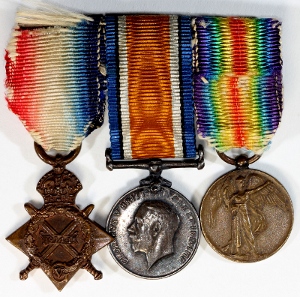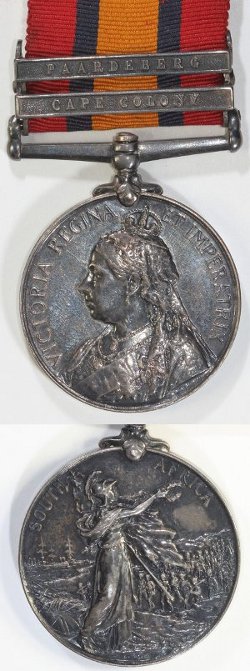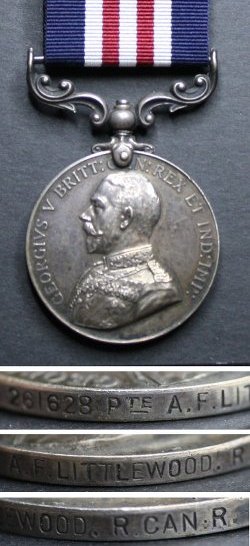Topic: Medals

Recently I displayed part of my own collection of medals in public. One observer felt it appropriate to state how dismayed he was to see dealers at the event profiting from the buying and selling of medals. But at the same time, my type of collection was "all right" because I researched the soldiers and displayed their stories along with the medals. So, which is it? Is it okay to collect, research and display medals, but not to buy and sell them? How, exactly, does one accomplish the former without engaging in the latter?
 As a dedicated collector to a very narrow theme (medals to soldiers of a single regiment with a main focus on one war), I simply don't have time to be available in multiple places in case a family member brings a medal in for sale, or to watch dozens of militaria shows and auctions, or to advertise my specific desires in hopes that I can find matching first order sellers. Instead, I must rely upon, and I welcome the participation of, dealers who do all of those things. They deal in medals with a generalist intent, resorting the items they gather and enabling me to pick and choose the single items that match my theme, as they similarly provide for the collecting desires of hundreds or thousands of other theme based collectors. Without the great support of dealers, some of who become friends and will contact specific collectors directly when they receive something they know fits a unique collection, I, for one, could never have amassed the modest collection I have and display. The dealers, those so-called "profiteers," are an essential part of this collective endeavour called medal collecting that leads to the preservation and research of individual medals by collectors.
As a dedicated collector to a very narrow theme (medals to soldiers of a single regiment with a main focus on one war), I simply don't have time to be available in multiple places in case a family member brings a medal in for sale, or to watch dozens of militaria shows and auctions, or to advertise my specific desires in hopes that I can find matching first order sellers. Instead, I must rely upon, and I welcome the participation of, dealers who do all of those things. They deal in medals with a generalist intent, resorting the items they gather and enabling me to pick and choose the single items that match my theme, as they similarly provide for the collecting desires of hundreds or thousands of other theme based collectors. Without the great support of dealers, some of who become friends and will contact specific collectors directly when they receive something they know fits a unique collection, I, for one, could never have amassed the modest collection I have and display. The dealers, those so-called "profiteers," are an essential part of this collective endeavour called medal collecting that leads to the preservation and research of individual medals by collectors.
 There always seems to be someone ready to denigrate the collector of military medals. "Profiting off their honour," they'll say, or "dishonouring the heroes." Sometimes, it's snide remarks inferring that the medals held by collectors must have been received via nefarious means, either stolen from families or swindled from poor widows. Collectors have even been called the "scum of the earth" by a Canadian Member of Parliament. With no open debate to counter his one-sided views, he even extended this opinion to the repetitive introduction of a Private Member's Bill to outlaw the sale of medals entirely. All of this is blatantly wrong in fact and tone; but held with such conviction that it openly displays the speaker's ignorance and offers little opportunity for rational debate. Once a critic has linked medal collecting to some sort of "sinful" profiteering, it is apparently a small leap to accuse any collector of somehow dishonouring the memory of those recipient soldiers, sailors, and airmen. This too, is one of those arguments they can never quite develop into a rational and complete argument when asked to do so. How exactly, they might be asked, does a collector spending hundreds or thousands of dollars to acquire, preserve and research the recipient of a medal group constitute dishonouring that recipient? The collector will often spend further time and money to remount the group for display, acquire research material and bring together the recipient's story (often for the first time), and go out of their way to find opportunities to share their work with others. That research is time and money spent that cannot be recovered and does not increase the value of the group. Significantly, it is work done at a level by very few Museums or other institutions which acquire medals, and exceedingly rarely done by institutions for "common soldiers."
There always seems to be someone ready to denigrate the collector of military medals. "Profiting off their honour," they'll say, or "dishonouring the heroes." Sometimes, it's snide remarks inferring that the medals held by collectors must have been received via nefarious means, either stolen from families or swindled from poor widows. Collectors have even been called the "scum of the earth" by a Canadian Member of Parliament. With no open debate to counter his one-sided views, he even extended this opinion to the repetitive introduction of a Private Member's Bill to outlaw the sale of medals entirely. All of this is blatantly wrong in fact and tone; but held with such conviction that it openly displays the speaker's ignorance and offers little opportunity for rational debate. Once a critic has linked medal collecting to some sort of "sinful" profiteering, it is apparently a small leap to accuse any collector of somehow dishonouring the memory of those recipient soldiers, sailors, and airmen. This too, is one of those arguments they can never quite develop into a rational and complete argument when asked to do so. How exactly, they might be asked, does a collector spending hundreds or thousands of dollars to acquire, preserve and research the recipient of a medal group constitute dishonouring that recipient? The collector will often spend further time and money to remount the group for display, acquire research material and bring together the recipient's story (often for the first time), and go out of their way to find opportunities to share their work with others. That research is time and money spent that cannot be recovered and does not increase the value of the group. Significantly, it is work done at a level by very few Museums or other institutions which acquire medals, and exceedingly rarely done by institutions for "common soldiers."
"No family would ever give up such valuable treasures, surely they've been stolen before being sold into the market." Have medals ever been stolen and sold to unknowing dealers or collectors? Most certainly. Have collectors ever discovered stolen items in their collection and had to give them up as evidence without recompense? Yes, that has happened too. Does this mean that any significant portion of the medals in collectors hands were stolen. Certainly not! Watching medal sales on ebay will occasionally reveal an auction where that seller admits that the medals they are selling were their father's or grandfather's, in which they have no interest.
Just because someone treasures their own grandfather's medals and would never give them up is no grounds to assume that anyone else will, or that everyone else should, hold their own ancestors' medals in the same regard. Any number of things might motivate an heir to sell medals, whether that be a simple preference for the monetary return, disinterest in what they stand for, feeling no personal connection to the relative that had received them, etc. The medals might only be one more thing handed to the auctioneer when Aunt Mabel's apartment is cleared out after her death. If someone has no personal interest in the medals, they are unlikely to expend any time or effort to send them to an appropriate museum. And if there are bills to pay for a funeral, a thousand-dollar medal group may be one of the few artifacts in Aunt Mabel's apartment that will help cover that cost. Alternatively, if the sale of medals were banned, and an auctioneer stated they were unsellable, how many would then land in a dumpster with the rest of the rejected items as that heir worked with only the desire to be rid of everything in mind. In any case, there's no collector standing there ushering those medals into an auctioneer's or a dealer's hands. That decision nearly always starts with the last family member to hold them.
 "Ban the sale of medals!" is an occasionally heard rally cry, one sometimes taken up by politicians seeking favour with constituents who might support such a measure. But this argument also is seldom fully developed; emotional cries for change seldom are. Should medals cease to be personal property, returned to the Crown on the death of the recipient? Would that not also prevent them passing to direct descendants? Or should families be required to register and retain them, releasing them only back to the Government to be held in an approved repository like a museum? How would we track such things, with a medal registry? What would we do with current collectors, seize their collections or grandfather them without allowance to resell ever?
"Ban the sale of medals!" is an occasionally heard rally cry, one sometimes taken up by politicians seeking favour with constituents who might support such a measure. But this argument also is seldom fully developed; emotional cries for change seldom are. Should medals cease to be personal property, returned to the Crown on the death of the recipient? Would that not also prevent them passing to direct descendants? Or should families be required to register and retain them, releasing them only back to the Government to be held in an approved repository like a museum? How would we track such things, with a medal registry? What would we do with current collectors, seize their collections or grandfather them without allowance to resell ever?
Consider the likely outcomes of such a restriction. What would happen if we only allowed medals to be passed to museums? Consider the Canadian War Museum. That institution probably has thousands of medal groups in its holdings, but a tour of the Museum's galleries shows that mere dozens are on display, and almost every set is of a significant valour award recipient or has other notable historical connections within the particular gallery where it resides. So, if your grandfather won the Victoria Cross, your grandchildren might be able to visit the Museum that receives it and see his medals. If, on the other hand, he was awarded the standard First World War pair of medals for service in the Canadian Forestry Corps, rest assured they will be cataloged and placed carefully in a drawer along with many other pairs just like his. And it is unlikely they will ever see the light of day again, or have anyone dedicate hours or days to researching his story.
So,where does this leave us? Currently, it leaves us all depending upon the collecting community to value, preserve and research the bulk of surviving medals which are no longer in family hands. Medals to soldiers of the 25th Canadian Infantry Battalion will often find themselves in the hands of a collector who concentrates on that unit, perhaps because it was his own grandfather's unit. Is he not family, to all the soldiers of that unit? Does he not have a keen awareness of exactly what those medals stand for? Certainly he does, and much more so than the descendant of the recipient who found no personal desire to retain them.
 While some collectors may hoard and keep secret their collections and the research they have gathered, often it is because they have found that tactic protects them from the very accusations identified above. But in this increasingly connected world, more collectors are speaking out and sharing the knowledge they have about individual recipients, about the units and battles they have researched, and about the techniques they use both to find information and to preserve and display their collections. Collectors build and share knowledge, among themselves, with inquirers about the soldiers and units they research, and with the public, increasingly through on-line forums and personal websites. Counter-intuitively to their detractors, and unlike some holders of family medals who have Grandfather's group proudly framed on the dining room wall (if not still hidden in the attic) and know no more than the shared stock of family stories, collectors add value through their own sense of community.
While some collectors may hoard and keep secret their collections and the research they have gathered, often it is because they have found that tactic protects them from the very accusations identified above. But in this increasingly connected world, more collectors are speaking out and sharing the knowledge they have about individual recipients, about the units and battles they have researched, and about the techniques they use both to find information and to preserve and display their collections. Collectors build and share knowledge, among themselves, with inquirers about the soldiers and units they research, and with the public, increasingly through on-line forums and personal websites. Counter-intuitively to their detractors, and unlike some holders of family medals who have Grandfather's group proudly framed on the dining room wall (if not still hidden in the attic) and know no more than the shared stock of family stories, collectors add value through their own sense of community.
Vilify not the collector, for one of them might be preserving those family medals you are seeking, and which might no longer exist if collectors did not value these medals when heirs within the recipients' families did not.
As we approach the centenary of the First World War, we can expect a sudden increase in interest in ancestors who served, their medals and their stories. For those who plan to research an ancestor who served in the Great War, odds are that at some point you will be corresponding with a collector, or reading a book written by one.
Scum of the earth? Not exactly, Mr Stoffer, but given the origin of that phrase, perhaps we should take it as a compliment, for the men it orginally applied to were also vilified by public and politicians, up to the moment when their actions were recognized as achieving the greatest feats a nation could ask of them. But we collectors, Mr Stoffer, are not scum, and you sir, are no Arthur Wellesley.

